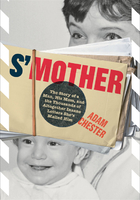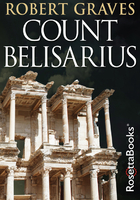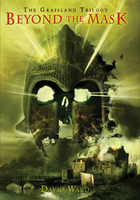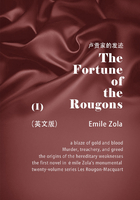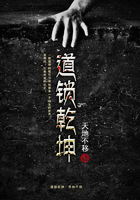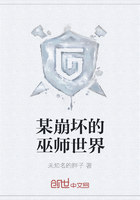DAVID BOIES LAWYER
I didn't learn how to read until I was in the third grade. Back then, nobody I knew had ever heard the word "dyslexia," but that's what I was eventually diagnosed as having. At the time, people just described me as "slow in reading." I was lucky because in the particular context I grew up in that was not a big deal.
It was the 1940s, and I lived in a small farming community in northern Illinois, where my father taught history and journalism at the local high school. Most of the graduates weren't intending to pursue professional or academic careers, and reading was certainly not a highly prized skill among first through sixth graders. We all had a variety of abilities, and the fact that I was not good at one of them didn't seem to matter that much. I couldn't jump very high either.
My dyslexia actually ended up benefiting me in an indirect way. It caused me to develop some useful skills. For example, public speaking. When I was thirteen, my family relocated to Southern California, and I signed up for the school debate team. While a lot of my teammates referred to notes in the midst of a debate, my dyslexia prevented me from doing so. If I looked down at my notes, it would take me a while to figure out where I was and read what I had written. When you're speaking, even a pause that's only a few seconds long leaves an awful lot of awkward dead time. As a result, I learned to speak extemporaneously from an outline. This technique enabled me to maintain a certain naturalness that has proved to be very effective in communicating with judges, juries, and audiences in general.
Dyslexia also forced me to become a better listener. We all get some of our information from reading and some from listening. Because I had difficulty reading, I needed to depend more on listening. When you really pay attention to the words people use, it tells you a great deal about what they mean and where they're going with what they're saying. If you hear a false note, for example, it tells you that they're avoiding something. The ability to listen to people has proved valuable, particularly when I'm cross-examining a hostile witness.
My grades in high school were okay, but because reading was difficult for me, I didn't particularly enjoy it. What I did enjoy was playing cards, drag racing, and partying with my girlfriend, Caryl. She was new to the school my junior year, and I fell in love with her immediately. It took me a week to make her my debate partner and a month to make her fall in love with me. At the end of my senior year, Caryl and I married.
When I graduated from high school, I had no intention of going to college. My goal was just to have a good time and make enough money to support my carefree lifestyle. And Caryl completely supported this game plan. I first worked on a construction crew then, when the weather got rainy, I got a job as a bookkeeper at a local bank. Construction work was hard and bookkeeping was boring, but Caryl and I were on our own, answering to no one but ourselves. I supplemented our income by playing cards, and we would spend our free time doing all the things young people do in Southern California: hanging at the beach, swimming, surfing, and taking the occasional drive down to Mexico. Things were idyllic. I had no sense that our lives would or should change.
But one day, about eight months after my graduation, we discovered that Caryl was pregnant. At first, she and I agreed that becoming parents wouldn't mean that we'd have to change our life, but a couple months before our baby was born, something shifted in Caryl and she became extraordinarily more responsible. She decided that it was time for me to make something of myself and that I should go back to school. Each day when I came home from work, a new school application or catalogue was there to greet me. Caryl would go on and on about how interesting the courses seemed and how nice the school looked.
I was hesitant. I knew that going back to school would be hard to manage financially and that I would have to compete academically with students who were better readers and more disciplined than I had ever been. But Caryl was determined. She felt I owed it to myself to try.
I was admitted to the University of Redlands in nearby San Bernardino County, and for the first time in my life grades were important. The university had given me a scholarship—my SAT scores were high—and I knew that in order to keep it I would have to perform well. I devoted more time to studying than ever before, and I also joined the debate team. Ironically, I think I was better prepared for college than I would have been had I gone directly after high school. I was more mature and had more motivation—having a child to support will do that to you.
I thought very seriously about becoming a high school history teacher like my father. But during the first semester of freshman year, I saw a sign-up sheet for the Law School Admission Test, and I figured I should keep my options open and take it. If I hadn't signed up right then, I would probably never have gone to law school. I later discovered that law schools were accepting students after only three years of college. I calculated that if I increased my academic load and went to summer school I could finish three years of course-work in two. The notion of getting double credit for what would have been my senior year in college was too attractive to pass up, so law school it was.
I ended up going to Northwestern Law then transferring to Yale for my last year. Caryl and I had two children at this point; making ends meet wasn't easy. I always had to have a job on the side. Throughout my first year of law school, I worked as a night clerk in a motel from midnight to eight a.m. After this, I would head directly to class. On the strength of my first-year grades and professors' recommendations, I was eventually able to get a job at a law firm doing research.
Upon graduation, I was pretty certain that I wanted to become a law professor, but I thought it would be a good idea to get a little real-world experience first. I interviewed with several firms and got an offer from the New York firm Cravath, Swaine & Moore. Working in Manhattan was not a natural choice (I had never been east of Chicago until I went to Yale), but Cravath had such an excellent reputation that I couldn't refuse. I thought, This will be for only a couple of years so why not? Inertia's a powerful force. I ended up staying at Cravath for more than thirty years.
When a major Cravath client objected to my representing the New York Yankees, I left to start my own firm. It was a difficult decision that a lot of people feared I would regret. At Cravath I had enormous financial security. I had an entire army of secretaries, clerks, paralegals, and accountants helping me. At my new firm I was in a loft in Westchester County with one person helping out, and the Yankees were my only client. It was a risk, but one I understood well. I felt it would work out, and it has. Not only was it a good financial move, but I've also had the freedom to focus on cases that I'm truly passionate about. If you're a worrier or a second-guesser, making a major career change like this isn't going to work. You have to be able to move forward and live in the present.
My career has had its fair share of victories and failures. It's important not to be either too encouraged or too discouraged by what's happening at any particular moment. No matter what you do, there will be times when things go well and times when things go badly. The only thing for sure, in either scenario, is that things will change. When something good happens, I try to enjoy it. When something bad happens, I try to understand why it happened. But in either case, the next day I'm on to something else.
DAVID'S PEARLS
In almost every major case that I've been in, and throughout my life, patience has served me well. To start, patience conserves time and energy. It is not true that a watched pot never boils, but it is true that a watched pot doesn't boil any faster because you're anxiously watching it. People who lack patience make all kinds of mistakes. Sometimes they'll tell you things they wish they hadn't because they just couldn't refrain from speaking. Sometimes they don't take the time to really know the facts and they say things that are incorrect. Sometimes they give up too early. I see that all the time: people not having the patience to stay with something that could have been successful. Before making a move, you should know as much as you can about your alternatives. Be clear about what you're trying to accomplish and how you're going to attempt it. Listen as much as you can before you speak. Give your opponent the opportunity to make the mistakes.
People see me in action at a trial and think I'm good at seizing moments extemporaneously—but what they don't see is the tremendous amount of work I've done to prepare. I can only take advantage of opportunities when they arise at trial because of all the time I've spent getting ready. I read thousands of pages of documents, interview people, research other cases, etc. It's tedious—like panning for gold. You have to wash away a lot of sand before finding a little nugget.
From the time I graduated high school through my years in law school, playing cards was a non-trivial part of what I did (and a non-trivial part of my income). Interestingly enough, it's also been a non-trivial source of useful lessons. Cards taught me a lot of what I know about patience. If you can avoid committing yourself until you've seen as many cards as possible, you'll make a better decision. Poker gave me some insight into how the human mind works. Bridge taught me about logic. Playing for money helped me learn about discipline and how to manage risk.

